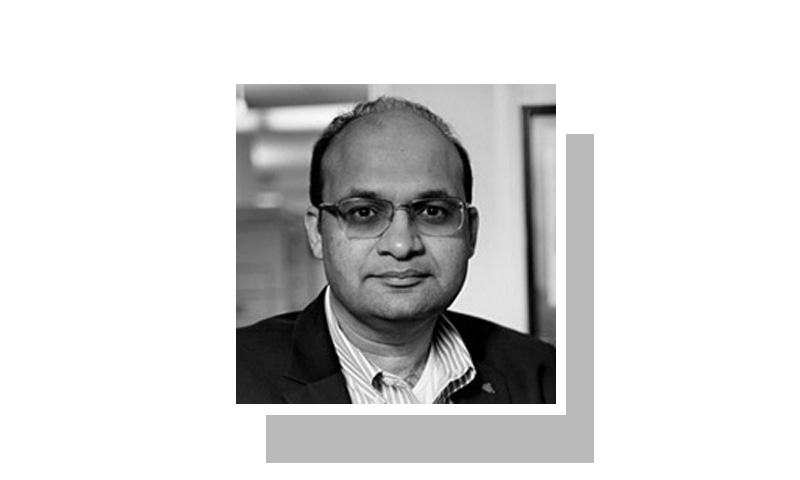MOHAMMED Khan, who has been working as a chowkidar for the last three decades, mentioned quite casually the other day that a female teacher at his granddaughter’s school had caned the fifth-grader. The caning, he said, had caused the fingers of the child to be dislocated. He wanted to know if we knew of a good orthopaedic doctor to whom he could take her.
Post the discussion about doctors, I asked him how he was proceeding against the teacher. He said he was not. He was concerned that any complaint against the teacher would backfire with consequences for the child. He had no hope from the head teacher. Going to the police, he felt, was out of the question.
The fear of reprisal and the lack of trust in getting justice from the higher-ups of the same department or of other departments, even of institutions that have been specifically set up to provide impartial investigation and impart justice, is not unique to Mohammed Khan. It is a systemic problem.
It is a problem that a) strengthens the status quo, b) entrenches resistance to change, c) disempowers the poor and the less connected, and d) makes the elites stronger. It also undermines the value of any development in reducing poverty, extending democracy or even promoting the spread of education. What is this child, whose fingers have been dislocated through caning, learning about empowerment and rights?
A friend, whose father has been ill for quite some time, is dependent for the continued care of his parent on regular visits and stays at a government hospital. Even though the hospital staff has made errors of omission and commission, several times in the care of his father, he dare not complain. He is afraid that his father might be denied treatment, or that his care might get worse. He puts up with the blunders even though some mistakes have brought his father to the brink and it has taken much longer for him to recover and the whole thing is costing more as well.
Giving wrong medicines, combining medicines that should not be consumed together, doing needless testing, asking him to get medicines that will never be used for his father, and charging extra for a few things here and there are regular and small issues. Injecting the wrong medicine and almost giving the incorrect blood type to his father are more serious issues. He lives with these but does not want to complain, at least not as long as his father is around and he needs the hospital to provide whatever care they are giving him.
A woman colleague has faced harassment at a number of institutions where she has worked. She has almost accepted the fact that she is going to face a certain level and type of harassment in any workplace. In fact, she attributes it to the larger issues of patriarchy and misogyny that are very deeply embedded in our society. But, in some places, instances of harassment have been quite serious. Even in these places she has almost never felt comfortable complaining. If things got to a point where she could not manage, and informal systems did not help, she chose to leave rather than explore any formal complaint routes. Even for companies that advertise ‘equal opportunities’ and have formal policies and complaint procedures, invoking them is hard and the fear of reprisal is always there.
A younger colleague, working at a university, was telling me that even in a university, a place where rights are supposed to be taken seriously and freedom of expression is seen as the foundation upon which the edifice of scholarly work is supposed to stand, she has never felt comfortable while expressing disagreement to seniors. Young male colleagues also complain of the same thing, so it is not a gender issue.
Seniority is taken seriously in our culture, and looked upon as a mark of wisdom. Disagreement is frowned upon and expressing dissimilar views comes at the cost of invoking fears of reprisals. One colleague was categorical: why should I take on the senior person when I know she is going to be on the committee that reviews my performance and recommends me for promotion?
The purpose of giving such varied examples and from varied areas was to argue that the problem is a general one and a deep one. Power asymmetries are a serious issue in Pakistan and they are entrenched and systemic. We do not see them a lot of times because we have become far too comfortable with them. But this is exactly when they are at their most destructive. We are more comfortable working on and changing things that we can readily perceive, but for things that are taken for granted, arguing for, designing and implementing change is much harder. Even making the case for changing such taken-for-granted and entrenched ways of doing things is hard.
But, the importance of this change can hardly be overemphasised. Will the teacher, the head teacher, the medical staff, university colleagues and male colleagues working with women, realise their errors of omission/commission on their own? And even if some do, will they have any incentive to change? Will they have incentives to redesign institutions to detect and punish wrong behaviour and to ensure there are no reprisals?
Unless they know there will be consequences for poor behaviour and for lack of change, they will not alter their ways. And if they do not, irrespective of the presence of formal structures of democracy and judicial systems, our society will remain an unjust one. And one where discrimination based on caste, creed, ethnicity, gender, geography, income and wealth will continue. Such societies cannot have sustainable paths to development. It is as simple as that.
The writer is a senior research fellow at the Institute of Development and Economic Alternatives and an associate professor of economics at LUMS, Lahore.
Published in Dawn, November 6th, 2015
On a mobile phone? Get the Dawn Mobile App: Apple Store | Google Play
































